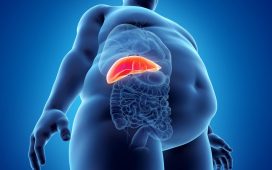Cumulative probabilities of false-positive results substantially lower for biennial versus annual screening, regardless of modality
WEDNESDAY, March 30, 2022 (HealthDay News) — The 10-year cumulative probabilities of false-positive results are modestly lower with digital breast tomosynthesis versus digital mammography, according to a study published online March 25 in JAMA Network Open.
Thao-Quyen H. Ho, M.D., Ph.D., from the University of California Davis School of Medicine, and colleagues estimated the probability of receiving at least one false-positive result after 10 years of screening with digital breast tomosynthesis versus digital mammography. The analysis included 903,495 individuals aged 40 to 79 years with 2,969,055 nonbaseline screening examinations; 15 percent of examinations used tomosynthesis.
The researchers found that the 10-year cumulative probability of at least one false-positive result was significantly lower with tomosynthesis versus digital mammography with annual screening (49.6 versus 56.3 percent for recall; 16.6 versus 17.8 percent for short-interval follow-up; 11.2 versus 11.7 percent for biopsy recommendation). For biennial screening, with respect to false-positive recall, the cumulative probability was significantly lower for tomosynthesis versus digital mammography (35.7 versus 38.1 percent), but no significant difference was seen in cumulative probabilities for short-interval follow-up recommendation (10.3 versus 10.5 percent) or biopsy recommendation (6.6 versus 6.7 percent). Cumulative probabilities of false-positive results were substantially lower for biennial versus annual screening, regardless of modality (overall recall, 35.7 to 38.1 versus 49.6 to 56.3), for older versus younger age groups, and for women with entirely fatty versus extremely dense breasts.
“We were surprised that the newer 3D technology in breast cancer screening does not substantially reduce the risk of having a false-positive result after 10 years of screening,” Ho said in a statement.
Two authors disclosed financial ties to Grail Inc.; one author disclosed ties to the publishing industry.
Copyright © 2022 HealthDay. All rights reserved.








